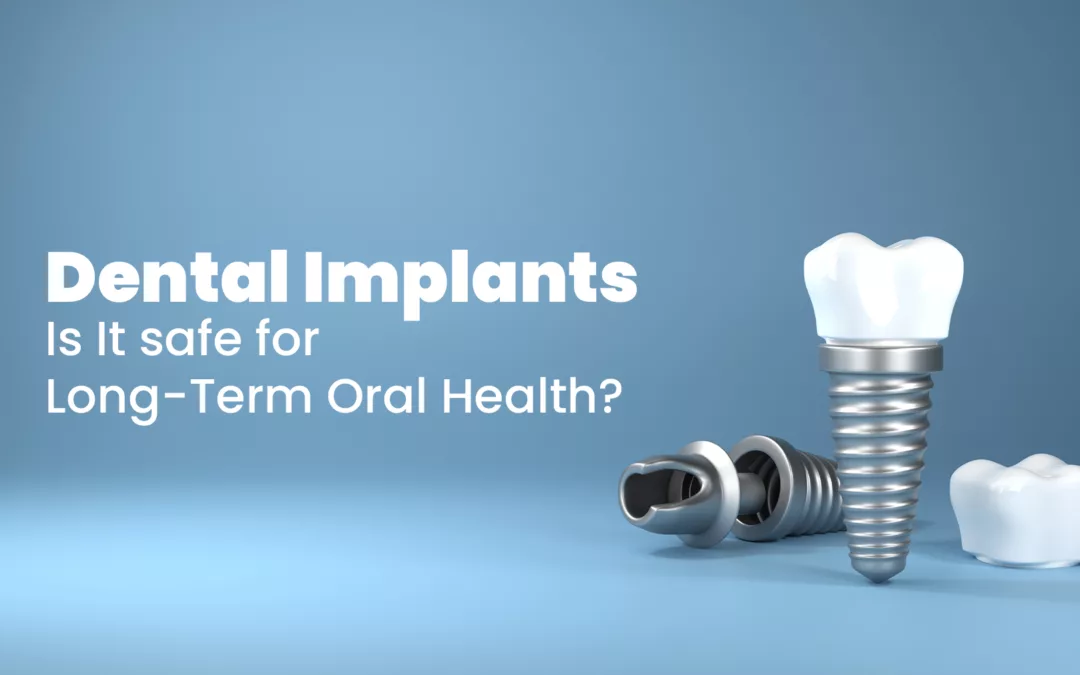Dental implants have revolutionized the field of dentistry, offering a reliable and permanent solution for missing teeth. For many people, dental implants are a significant investment in their oral health, providing both functional and aesthetic benefits. However, one of the most common concerns is their safety and effectiveness over the long term. This article delves into the long-term safety of dental implants in Dartford and their impact on oral health.
Understanding Dental Implants Treatment
Dental implants are titanium posts surgically inserted into the jawbone, serving as artificial tooth roots. They provide a stable foundation for fixed or removable replacement teeth, designed to match natural teeth. Over time, the implant fuses with the jawbone through a process called osseointegration, which ensures durability and stability.
The Safety of Dental Implants
Biocompatibility of Materials
The primary material used in dental implants is titanium, known for its high biocompatibility. This means that titanium is generally well-tolerated by the body and integrates seamlessly with bone tissue. This compatibility significantly reduces the risk of rejection and allergic reactions, making dental implants a safe option for most patients.
Surgical Procedure and Expertise
The safety of dental implants largely depends on the expertise of the dental surgeon performing the procedure. Advanced technology and improved surgical techniques have increased the success rate of dental implant surgeries. Preoperative planning, including thorough imaging and assessment, ensures precise placement of the implants, minimizing complications.
Post-Surgical Care
Post-surgical care is crucial for the long-term success of dental implants. Patients must adhere to their dentist’s instructions, including maintaining oral hygiene, avoiding hard foods, and attending regular follow-up appointments. Proper care during the healing period significantly reduces the risk of infection and other complications.
Long-Term Benefits of Dental Implants
Improved Oral Health
Dental implants help preserve oral health by preventing bone loss, which commonly occurs after tooth loss. The implants stimulate the jawbone, maintaining its density and preventing deterioration. Unlike traditional dentures or bridges, dental implants do not require the reduction of adjacent teeth, thus preserving the natural tooth structure.
Enhanced Functionality
One of the most significant benefits of dental implants is the restoration of full chewing ability. Patients can eat a wide variety of foods without the worry of their teeth shifting or slipping, as can happen with dentures. This improved functionality contributes to better nutrition and overall health.
Longevity and Durability
When properly cared for, dental implants can last a lifetime. They are more durable and stable compared to other tooth replacement options. The longevity of dental implants makes them a cost-effective solution over the long term, despite the higher initial investment.
Potential Risks and Complications
While dental implants are generally safe, they are not without potential risks and complications. Understanding these risks can help patients make informed decisions.
Infection
As with any surgical procedure, there is a risk of infection. This risk can be minimized with proper surgical techniques and post-operative care. Patients should follow their dentist’s instructions carefully to ensure proper healing.
Implant Failure
Although rare, implant failure can occur if the implant does not integrate with the bone properly. Factors such as smoking, poor oral hygiene, and certain medical conditions can increase the risk of implant failure. Regular dental check-ups can help detect early signs of problems.
Nerve Damage
In some cases, improper placement of the implant can lead to nerve damage, causing pain, numbness, or tingling in the gums, lips, or chin. This risk underscores the importance of choosing an experienced dental surgeon.
Mitigating Risks
Thorough Evaluation
A comprehensive dental and medical evaluation is essential before proceeding with dental implants. This assessment helps identify potential risk factors and allows for personalized treatment planning.
Advanced Technology
The use of advanced imaging techniques, such as 3D cone beam CT scans, aids in precise planning and placement of dental implants. These technologies enhance the accuracy and safety of the procedure.
Experienced Professionals
Choosing a qualified and experienced dental implant specialist significantly reduces the risk of complications. Patients should research and select practitioners with a proven track record of successful implant surgeries.
Conclusion
Dental implants are a safe and effective solution for replacing missing teeth, offering numerous long-term benefits for oral health. Their high biocompatibility, coupled with advancements in dental technology and surgical techniques, ensure their safety and success. While potential risks exist, they can be mitigated through thorough evaluation, proper surgical care, and adherence to post-operative instructions.
For individuals seeking a permanent and reliable solution for tooth loss, dental implants provide a pathway to improved oral health, enhanced functionality, and lasting confidence in their smile. With proper care and regular dental visits, dental implants can be a safe and sustainable option for long-term oral health.

